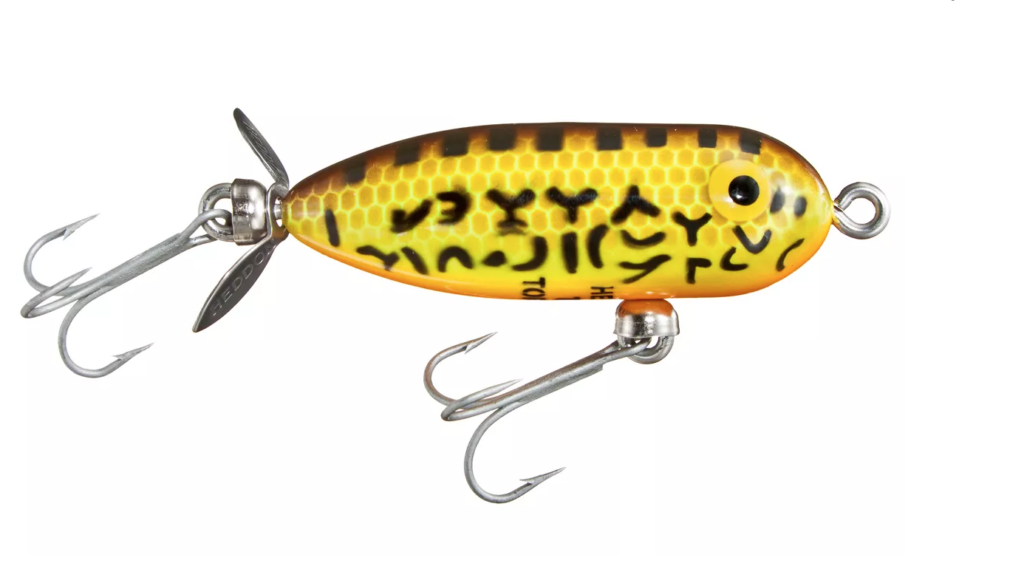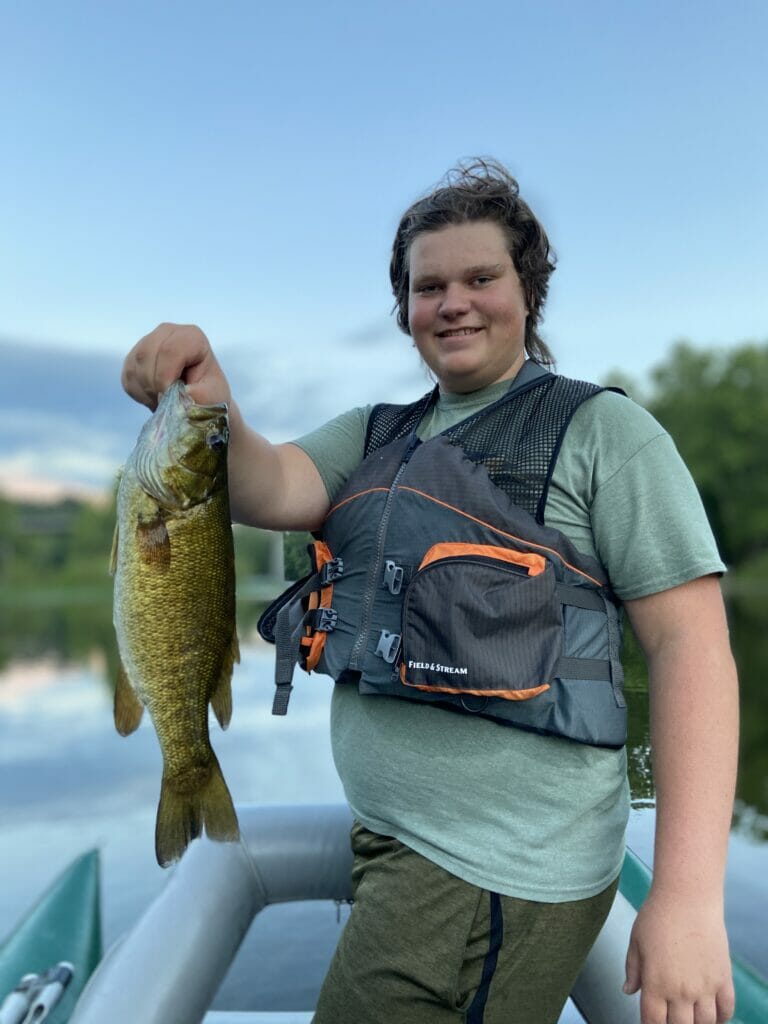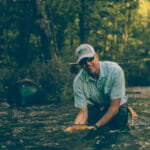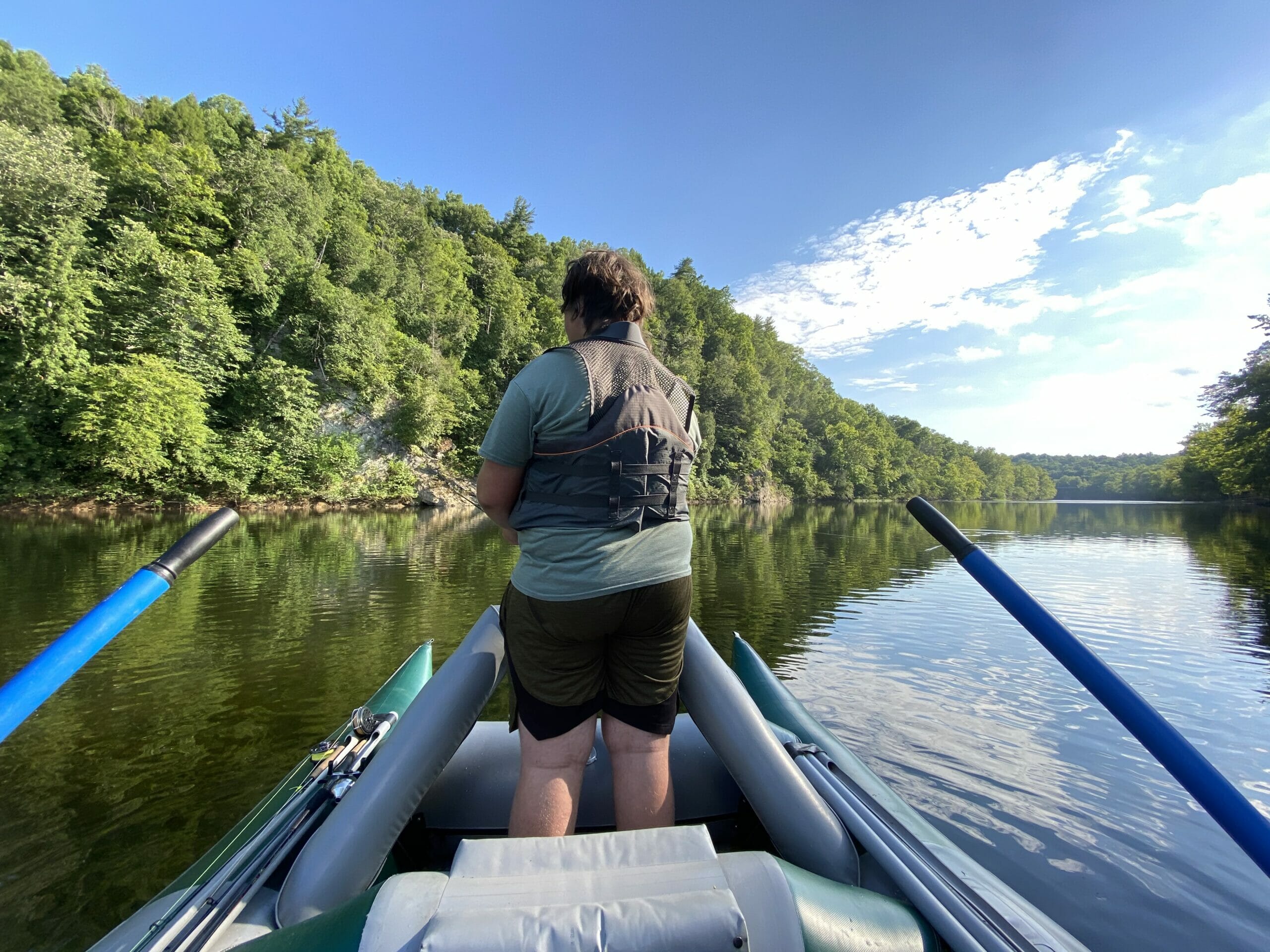By Mark Taylor
Beck had just made a nice cast, his lure landing in a shady spot next to the James River’s bank, when he did something you don’t expect from a 15-year-old.
He admitted he was clueless
“When I go to a store and look at all the fishing lures, I have no idea what to buy,” he said.
We had been floating for maybe an hour at that point, casting topwater lures and fly rod poppers for smallmouth bass that hadn’t been cooperative.
Beck is a novice angler but his interest seems to be more than just a passing fancy.
I probably should have figured that out three years ago when my neighbor and I took Beck and his older brother Davin on a float fishing and camping trip on the Jackson River, a tailwater trout stream here in Western Virginia.
On a hot, sunny day over the course of several hours and 7 river miles, Beck made probably a thousand casts from the front seat of the canoe. He caught one fish, a 7-inch brown trout.
After dinner at camp he disappeared. He was back at the river, casting.
We hadn’t fished together since. I’d like to blame my work and travel schedule and his busy school and sports schedule, but the fact is I hadn’t made a good enough effort beyond loaning the boys — whose mom and dad don’t hunt or fish — some gear once in a while.
That’s not good enough and I regret it.
Part of the fun of fishing is learning things on our own. But when you’re starting from scratch that’s a tough order.
My dad took my brother and me fishing frequently, and it never dawned on us that he was doing more than just letting us tag along. He was constantly teaching. On the way there. On the water. And on the way home.
But especially on the water.
“Don’t reel when the drag is screaming or you’ll twist the line!” he’d shout when we were battling a big trout or smallmouth.
“For Pete’s sake, keep your rod tip up!”
“Could you possibly tie a worse-looking knot?”
“Don’t use that lure. That’s one of my favorites and you’ll probably lose it.”
He didn’t baby us, that’s for sure.
The stretch of the James we were on the other evening is generally slow, so as Beck cast from the raft’s front seat I was able to stand up in the back and cast, too.

Without really thinking about it I found myself teaching. Sometimes the lessons were unprompted; sometimes in response to a question.
“Do smallmouth hang around fallen trees?” he wondered.
In some rivers, yes. I told him. But in this one the make-up of the bottom seems to be more important. The more rocks and boulders the better, usually.
“That kind of habitat holds hellgrammites and crayfish, which bass love,” I said. “However, we’ve seen a lot of minnows in the shallows and that’s what we’re imitating with our topwater lures.”
We talked more about lures, and about how sometimes it’s important to try to match the forage that predator fish are focusing on at the time. But, at other times when the fish aren’t actively feeding, sometimes it’s best to throw something outrageous in hopes of triggering an instinctual attack.
Neither approach was working for us. I tried a number of lures and flies with no success, so figured Beck was no worse off continuing to cast the beat up Heddon Tiny Torpedo I’d set him up with.
About halfway through the float a fish finally blew up on it. Beck managed to boat the 9-inch smallmouth and seemed happy to have broken the ice. That was it for a long time, except for a good fish that blew up on my buzzbait.
I promptly lost the bass, which gave me a chance for another lesson.
“I let it get some slack,” I said. “That rarely turns out well.”
When the bridge at the takeout loomed in the distance I told Beck we were about done.
“I’m just glad to be out here,” he said. “And at least I caught one fish.”
Two casts later a bass blasted the Tiny Torpedo. Beck pointed the rod at the fish, reeling frantically as the drag screamed. One jump and the fish was off.
“You have to keep the rod tip up, man,” I said. “Let the rod absorb the shock.
“And for Pete’s sake don’t reel when the drag is going out our you’ll twist the line!”
He nodded.
“I don’t catch enough fish to know how to do it,” he said.
“That’s going to change,” I said.
And it did.
A few casts later he got another strike. This time he kept the rod up. He didn’t reel when the bass took drag. And when the fish got close to the raft and went under the boat, Beck gingerly guided the fish back out and into the net.

“It’s huge!” he said, beaming.
I laughed and gave him a high five. It really wasn’t huge, but it was a darn nice bass of probably 2 pounds.
I took a quick picture and he released the fish, still smiling.
He’s a good student.
I’ll keep working on becoming a better teacher.
Mark Taylor is Trout Unlimited’s eastern communications director. He lives in Roanoke, Va., but his love for fishing began during a childhood in rural southern Oregon.



